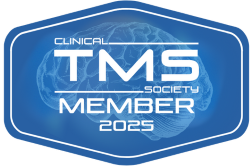At Relief Mental Health, we’re experts at treating individuals with major depressive disorder (MDD) and treatment-resistant depression (TRD). We know the symptoms of depression can be extremely disruptive and uncomfortable. In some cases, depression can impair relationships, work performance, academic achievement, and prevent individuals from participating in the essential activities of daily life, including things like attending to personal hygiene, healthy eating, and engaging in typical social activities.
We combine traditional approaches to depression treatment such as psychiatry, medication management, and talk therapy with cutting-edge treatments like transcranial magnetic stimulation (TMS), SPRAVATO®, and IV ketamine infusions. Our wide range of treatment options increases the likelihood that all patients at Relief Mental Health meet their treatment goals and learn to successfully manage the symptoms of depression.
